

Language and Literacy Research Center (LLRC)
Past Events
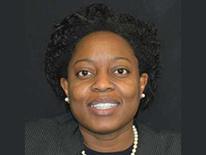
12.6.2018: Amanda Alexander
DCPS Interim Chancellor
Improving Language and Literacy Outcomes for K-2 Students in DCPS: An Overview of the Current Multi-Pronged Approach
This year DCPS has embarked upon an ambitious new strategic plan, focused on six bold new goals. One of these goals states that by the 2021-2022 school year, 100% of DCPS K-2 students will be reading on or above grade level. We know that to achieve this goal, the work begins with the district’s youngest learners – The 6,000 three and four year old students who attend DCPS PK programs. DCPS has taken a multi-pronged approach to promoting language and literacy learning for our youngest learners including: Guidance for Schools, Core Instructional Practices/Professional Development for Teachers, and Vertical Alignment. Dr. Amanda Alexander, Interim Chancellor of DCPS, will provide an overview of this strategic plan and also discuss the plan for strategic implementation in a large urban district.

10.30.2018: Dr. Jill Pentimonti
Principal Researcher at the American Institutes for Research (AIR)
Language and Literacy Instruction in Early Childhood Classrooms: Assessment and Intervention
High-quality instructional supports and assessment of those supports is critical at all levels of language and literacy instruction, and most especially for young children with disabilities or who are at-risk for later reading difficulties. This presentation will overview both an intervention designed to provide targeted language and literacy instruction to children in pre-K and a measure of teacher behaviors that support language and literacy development in early childhood classrooms.

9.25.2018: Dr. Maximiliano Montenegro and Dr. Alejandra Meneses
Pontificia Universidad Católica (PUC) de Chile
Language, Literacy, and Science Learning:
Contributions from Chilean Research
An increasing number of studies has shown literacy’s relevance for science learning in school contexts, specifically how science learning can mediate the relationship between language and literacy skills. However, few of them have taken place in Latin American schools. In this presentation, we will share the results from two studies conducted in Chilean elementary schools (Grades 4 and 5).
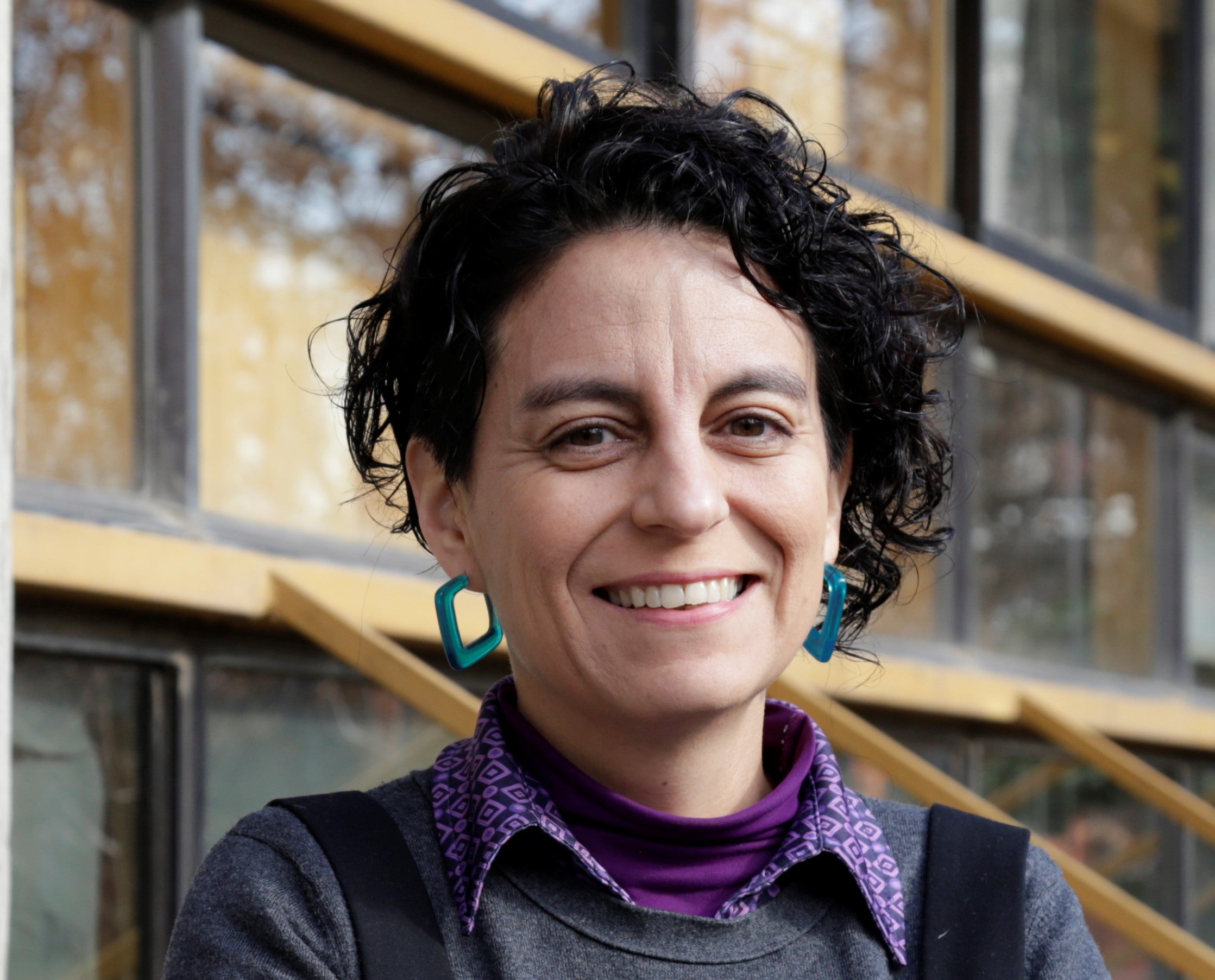
The first study examined the effects of an intervention in science, in relation to explicit academic language and literacy instruction to improve science learning. This study contributes –to the limited evidence– on how academic language and disciplinary literacy in Spanish are key factors to promote educational equity among low-income students. In the second study, we measured the direct and indirect impact of reading fluency, academic vocabulary and reading comprehension on science learning in Spanish speaking 5th graders. These results highlight the relevance of developing reading comprehension, supported by reading fluency, and academic vocabulary in science, to reach higher levels of understanding in science, as well as the importance of focusing on disciplinary literacy.

4.5.2018: Dr. Diana Leyva
Davidson College
Recipe for Success:
How Parents Support Literacy and Math
Development Through Food Routines
Everyday family food routines such as grocery shopping and cooking are important venues through which parents can foster children’s literacy and math development. Dr. Leyva discussed five studies she has conducted examining the relationship between parental support in family food routines and children’s literacy and math skills. The first four studies used the same methodology to examine concurrent and predictive relations during the preschool and early elementary years in diverse communities, including low-income African American, Latino and Chinese families, low-income Chilean families, and middle-income European American families. The fifth study involved the design and implementation of a family program (“Food For Thought”) that capitalizes on food routines to develop children’s literacy and math skills. This intervention study was implemented in the U.S. with low-income Latino families and yielded positive results in both literacy and math outcomes. Implications for family programs working with minority communities and targeting school readiness skills were further discussed.

2.6.2018: Dr. Jeffrey Lidz
University of Maryland
Children's Attitude Problems
How do children learn the meanings of propositional attitude verbs like ’think’, ’want’ or ‘know’? Dr. Lidz and colleagues argue that children use information from syntactic distribution and pragmatic function to zero in on the appropriate meanings. Specifically, they identify a potentially universal link between semantic subclasses of attitude verbs, their syntactic distribution and the kinds of indirect speech acts they can be used to perform. As a result, children can use the syntax as evidence about the meaning, which in turn constrains the kinds of pragmatic enrichments they do and do not make in understanding these verbs in conversation.
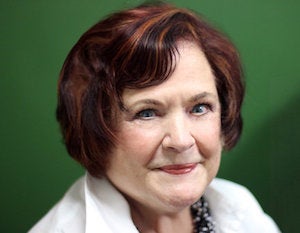
2.6.2018: Dr. Patricia Alexander
University of Maryland
Reconceptualizing Adolescent Literacy in the Age of Information Saturation, Multitasking, and “Fake News”
Today’s adolescents live in a world that stands in sharp contrast to often overly simplistic conceptions of literacy captured in empirical research and instructional practice. Students are increasingly required to navigate the infinite expanse of the Internet, locate multiple sources, and integrate or reconcile the information those sources convey for an academic task they see as irrelevant. Even those who espouse a “new literacy” for the technological age, overlook certain challenges that processing online can pose to students who may mistakenly regard to themselves as digitally competent. Dr. Alexander presented lingering questions that call for empirical investigation as well as what transformations in instructional practice seem warranted.

12.5.2017: Dr. Kelly Cartwright
Christopher Newport University
How do hot and cool executive skills contribute to the development of reading comprehension in skilled and less skilled comprehenders across the lifespan?
Dr. Kelly Cartwright’s presentation highlighted her research that looks beyond traditional predictors of reading comprehension to higher order cognitive skills like executive functions, that may also underlie successful reading comprehension. Executive functions are higher order cognitive processes that support goal-directed behavior, such as the parallel goals of understanding and learning from text. Dr. Cartwright discussed the contributions of cool executive functions (i.e., purely cognitive skills, such as cognitive flexibility) and hot executive functions (i.e. socially- or emotionally-motivated skills, such as theory of mind) to language and reading comprehension from preschool to adulthood. These findings have implications for the development of interventions to foster successful comprehension in typical and special needs student populations.
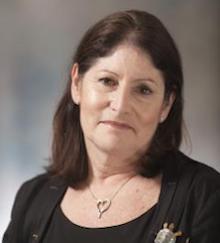
10.24.2017: Dr. Nan Bernstein Ratner
University of Maryland
Understanding the Relationship Between
Language Proficiency and Spoken Fluency
Recently, federal funding established a FluencyBank initiative designed to facilitate basic and applied research in understanding fluency development, pre-requisites for oral fluency, and the causes of fluency disorders, such as stuttering. Dr. Bernstein Ratner discussed how traditional boundaries between “language” and “speech” are becoming increasingly blurred as we move from traditional measures of language skill, such as productivity and error-free production, to more fine-grained measures such as rate and fluency of spoken language, in both children and adults. TalkBank initiatives, such as FluencyBank, disseminate both the tools and data sharing opportunities to advance our understanding of interactions between speech and language.
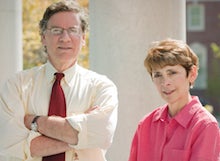
10.3.2017: Drs. Doug & Lynn Fuchs
Vanderbilt University
Is there a role for cognitive processes in interventions for at-risk student with and without learning disabilities?
Over the past 2 decades, researchers have validated the effects of interventions that substantially improve the academic outcomes of many at-risk learners. The dominant approach in validated interventions is explicit skills instruction. Yet, research demonstrates that this approach does not meet the needs of all students, especially those with learning disabilities. So a need exists to expand our approach to address a broader range of students. Dr. Lynn Fuchs and Dr. Doug Fuchs' idea is to embed instruction on the domain-general abilities associated with academic performance. They illustrated this idea by presenting recent experimental research on embedding working memory training in reading comprehension instruction and language comprehension instruction within math problem-solving intervention.

9.28.2017: Colin Phillips
University of Maryland
The Relationship Between
Speaking and Understanding
Colin Phillips is Professor and Distinguished Scholar-Teacher in the Department of Linguistics at the University of Maryland, where he also serves as Director of the Maryland Language Science Center, and Associate Director of the Neuroscience and Cognitive Science Program. His research interests are primarily in psycholinguistics, cognitive neuroscience, and language acquisition and their relevance for cognitive models of grammar. He has received over $10 million in grants for his research and education projects, including two NSF graduate training grants. He is at his happiest when combining his passions for language and endurance sports, and this led him to create Team Psycho Linguists, a group of language science students and faculty who every fall compete in a 200-mile relay across the state of Maryland.